After President Donald Trump's polarizing win in the recent election, many of us found ourselves asking, "How did this happen?" The months leading up to November's Election Day were tumultuous, but people around the world and most every poll unanimously argued that a Hillary Clinton win was sure thing--until it wasn't.
As we grappled with a new surprising future in the days following, it became incredibly clear that Trump was able to capture a stunning victory by focusing on the lives of those many of us fail to notice or just plainly ignore--the same lives filmmaker Travis Mathews takes us on an erotic ride with through his new sexual thriller, Discreet.
Related | OUT100: Travis Mathews & Kirsten Schaffer
OUT sat down with Mathews, a priorOUT100 recipient and collaborator with James Franco onInterior. Leather Bar, to talk about the blank profiles that dot rural, conservative landscapes on Grindr, the cautionary tales of hooking-up with discreet men and how to resist in the age of Trump. Read our conversation, below, and watch an exclusive teaser that we're sure will have us all thinking twice about those blank profiles asking, "Sup?"
OUT: You grew up in rural Ohio. How much of your own experience motivated you into exploring Texas' "discreet" culture through this film?
Travis Mathews: I'm sure that it informed and motivated me in all sorts of ways, but rural isolation is basically the same wherever you go. Among other things, it's a ripe breeding ground to exploit people's fears about difference and otherness, especially if you're working class and looking for scapegoats. The Republicans have done a shamefully good job at harnessing this through gerrymandering, talk radio and Fox News. It's that kind of sleight-of-hand sleaze built on mythologized Marlboro Man ideals that I wanted to explore through the character of Alex.
As I was driving around Texas listening to conservative talk radio I tried to understand how that vitriol was intersecting with the black box profiles that I saw on the gay hookup apps. The movie is really about gathering all of that bubbling masculine anxiety during the US presidential campaign then channeling it through the traumatized mind of one character on a difficult journey.
You've stated that this film is a "cautionary" tale of what being discreet can do. How do you think it does that? And is discretion something we should all see as a red flag?
When someone uses "discreet" as a primary way to identify who they are or what kind of play they're into, it may be harmless, but you know that they're hiding something, either from you, themselves, or from someone else. In most cases it's guys who are closeted and/or married, but they're always hiding something. You find this everywhere, but the more rural I went in exploring this notion of discretion, the more it did feel like a red flag.
The pressures to appear as a straight country boy in rural America are still very alive, and with greater pressure to conform comes a greater need to be secretive and to subscribe to an increasingly narrow definition of what a "real man" is. It's not surprising then that it often comes with a bonus slice of misogyny and racism. Other is bad, foreigners are bad. Isolate more. Make America great again! I kept hearing and seeing this in Texas, from closeted gay men to conservative talk radio hosts spewing propaganda.
To me, it's all a red flag because it comes from a crippling fear of being emasculated. Look at how dangerously fragile our [President's] ego is and the lengths he goes to hide it. We're in a scary place because of this man's fragile ego.
This film arrives at a time when Trump and the far-right are emboldened. Did you imagine releasing this film in this type of moment?
When I was writing Discreet and then when we were filming in February 2016, we all wrongly assumed that we were reaching peak crazy with this emergence of the alt-right and these regressive ideas of American muscularity. We thought we'd be living in a new progressive era with a Madam President Clinton. Our dark little film was going to be a cautionary tale about stepping to the edge of the abyss. And now here we are in the midst of it.
I see us increasingly moving in this protectionist direction, driving personal isolation and nativist tendencies. There's the sense that things aren't good out there, so close the borders, close your doors and just sit on your phones. What's real, who can you trust? These are all such free-floating anxieties in America right now that many people's impulse is to cave inward and to isolate. Alex is a manifestation of all this.
Related | Grindr Turns 8 Years Old: Now What?
What role do you think apps like Grindr have played in perpetuating or bringing to light this culture you're exploring?
Apps are just tools and it's what you do with them the matters. There's a compelling case to be made for apps as lifesavers in rural areas, if for no other reason because you quickly realize that you're not alone in the wilderness.
There are certainly a lot of ways in which apps allow for good, but like the Internet, there's a dark side. Its pretty well documented that the relative anonymity of apps have emboldened a lot of men to act out their worst impulses with one another, especially behind the safety of a black box profile with nothing more than the word, discreet.
What do you want viewers to walk away with after seeing Discreet?
It's an unconventional film, and one with a lot of entry points for viewers. I want to invite people to consider watching the film through the prism of the politics that shaped it, and to hopefully leave the theater considering the scope of what's happening in America. Hopefully, some folks will be inspired to make their own work that responds to this dangerous moment we're sifting through. It's not the time for people to be quiet or isolate.
This week, OUT will be looking back at Grindr's 8-year legacy since the gay hook-up app first launched on March 25, 2009. Through a series of stories and images, we'll investigate where we came from to know where we're going.
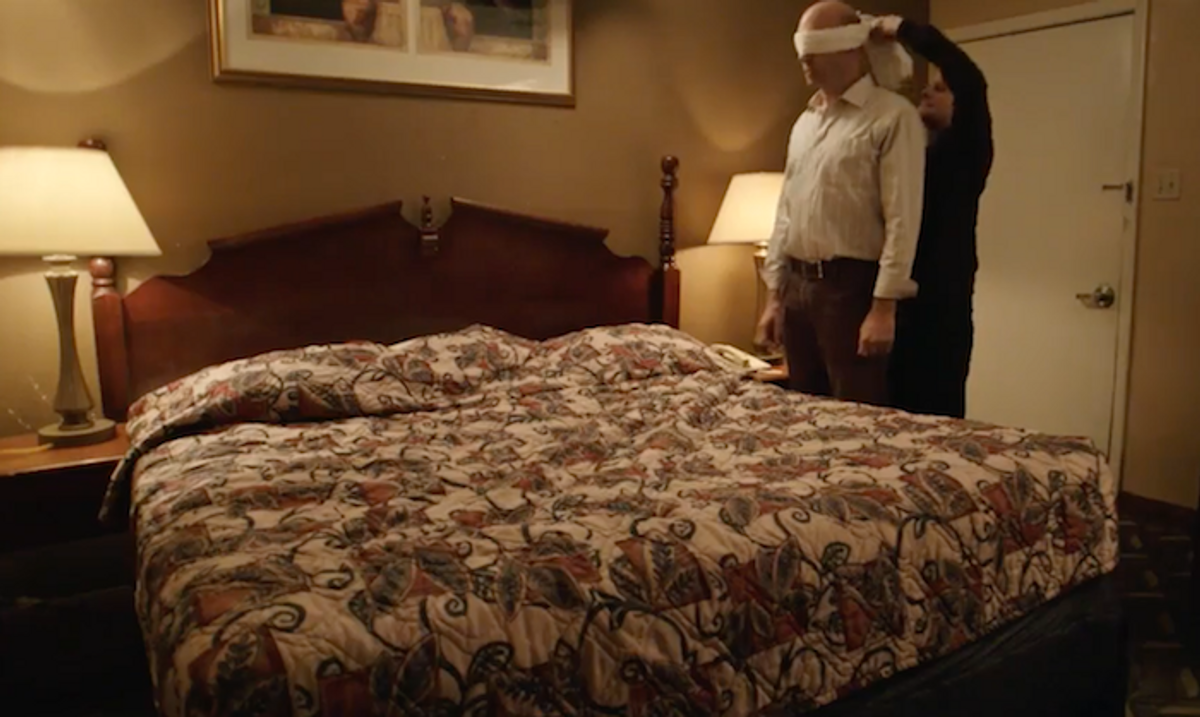





























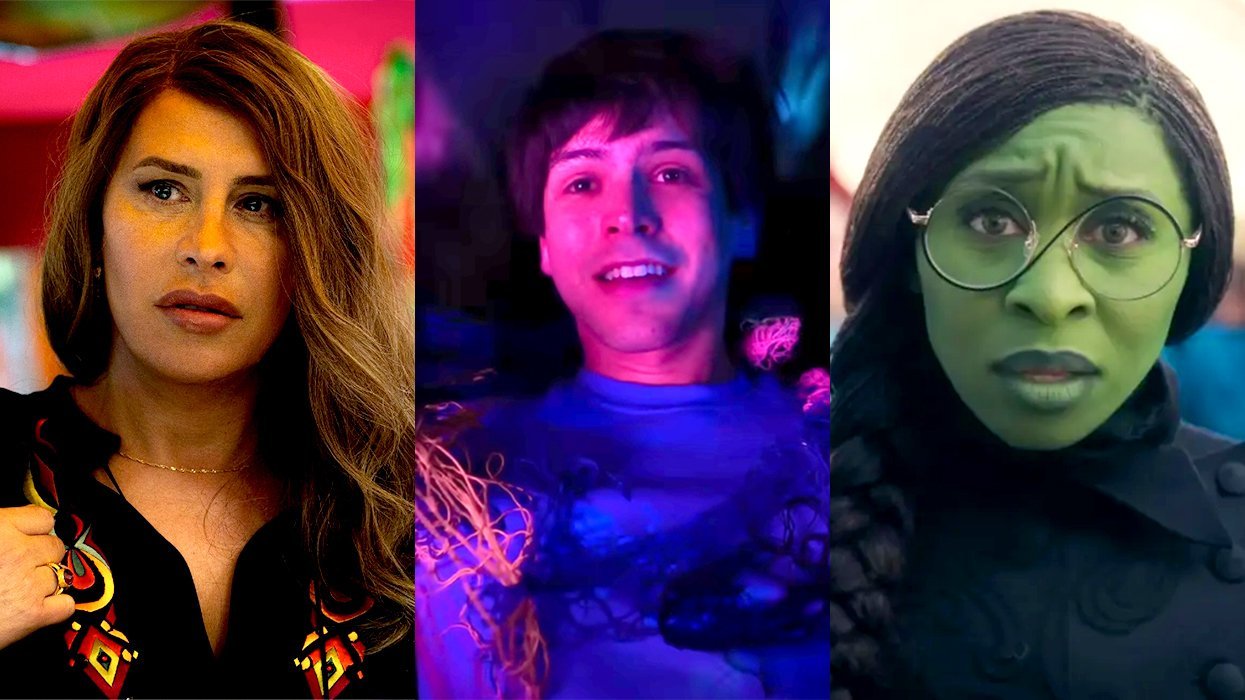



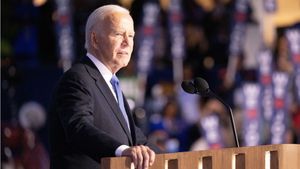

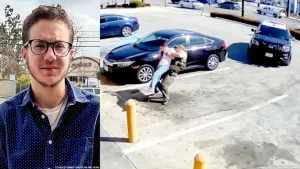


































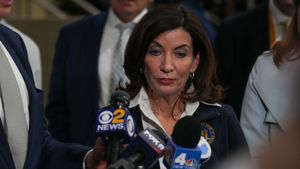

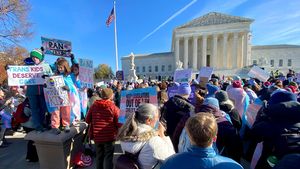







Sexy MAGA: Viral post saying Republicans 'have two daddies now' gets a rise from the right